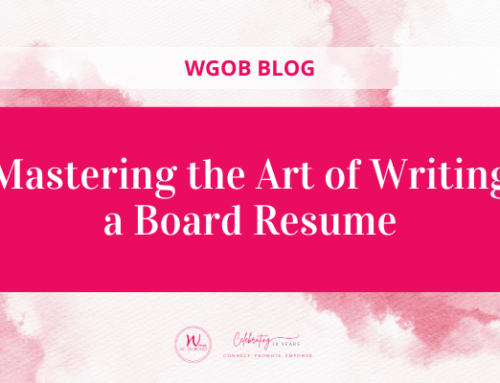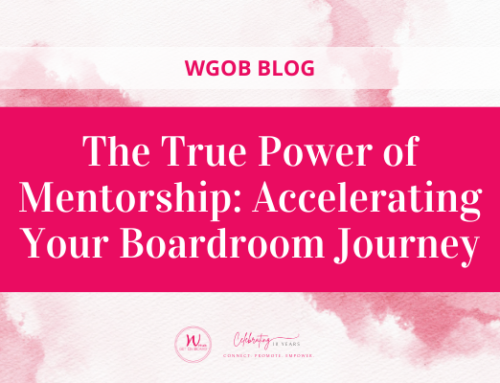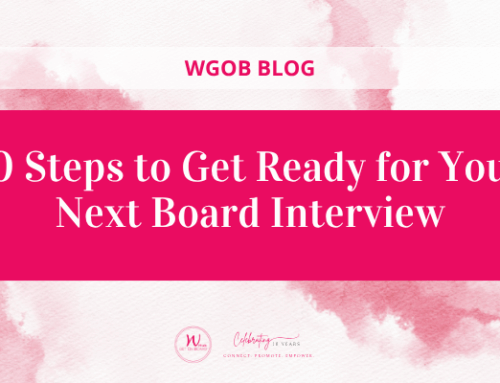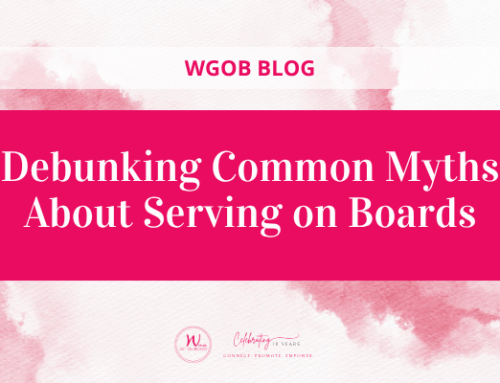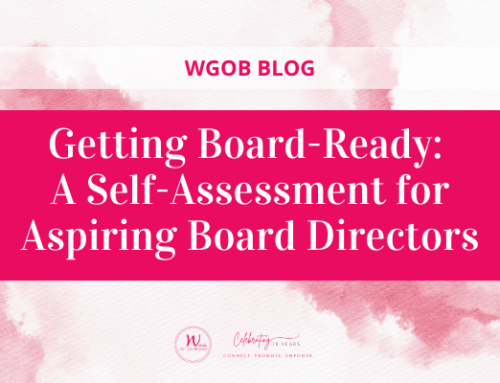
Cybele Negris is CEO & Co-Founder of Webnames.ca, Canada’s original .CA Registrar. Cybele is appointed to the BC Premier’s Technology Council, is Vice-Chair of the Small Business Roundtable of BC, serves on the Chair’s council for Science World and on the SFU Innovation Advisory Board. She has previously served on numerous other boards and is a a four-time winner and Hall of Fame Inductee of Canada’s Top 100 Most Powerful Women.
As the President of WebNames.ca, how do you view your core role in interacting with the Board of your company?
I do a lot of preparation just to make sure that we’re keeping the Board informed. Financials and strategic direction are always important. We also ensure that the Board knows that we are very focused on security and compliance and that we have those issues covered. From the Board perspective, risk assessment and liability are always on somebody’s mind.
Also, we use Board members’ time effectively. By focusing on where they can contribute, we get their assistance but don’t pull them into the weeds.
I have also supplemented the actual Board with an advisory Board. With the advisory Board, I focus on innovation and the blue-sky side. Often, they come back with good, challenging questions about striking that balance between revenue generation and innovation; how quickly we want to grow and the risk of taking on something completely brand new.
On the flipside as a Board member, how does being an entrepreneur shape your interaction with management?
I understand from the CEO side what a Board needs to deliver. I’m very sympathetic to the CEO and very understanding that you need to give management the ability to do what they need to do and maintain that separation between Board oversight and operations. You want ideas brought to management, but don’t micro-manage.
As an extremely busy and successful entrepreneur, why did you decide to put your time into Board service?
It started about 10 years ago, about 5 years into the WebNames business. I started getting calls from people to serve on Boards. I wound up being the President of Wired Women in Vancouver. That one was really based on my belief that there should be more women in technology. After about 2 years I had to step down. I was pregnant with my second child. That was my first position giving back to the community. It was a great experience. It was something near and dear to my heart. It felt really good and fulfilling.
How do you decide how much Board activity you can handle on top of your business?
I was down to one or two Boards. I get a lot of asks and I’ve said no often. Then somebody will convince me that an opportunity is a valuable and worthwhile endeavour and it’s not going to be a huge time commitment. The next thing I know, I‘m at all of their events helping with fundraising and marketing strategy. The intention is to get involved at a cursory level whenever I can, but with my personality I should know better because once I get involved I can’t help myself and I get way too involved.
Do you regret some of the time you put into Board service?
Honestly, right now, I’m exhausted. I’ve officially taken on too much. Typically, I don’t get to that point. I’ll keep doing it and pushing it to the point where I’ll be sleeping 2 to 4 hours per night. But I’m officially at the point where I’ve taken on too much. As new opportunities continue to arise I will be assessing some of my current roles and potentially replacing them.
What filters do you use to help decide if a Board opportunity is a good investment of your time and energy?
#1 is alignment with what I do: helping women or technology entrepreneurs. Those are very much aligned with my values are in terms of giving back. I’ll always look at those ones. The second point is impact. Can I make a big enough impact, or is there somebody else that I can think about introducing to the Board? It doesn’t have to be me. I know enough people now who can do it without me, so that’s another good filter. And, third, corporate Boards would be a good next step for my own career development.
What are the next steps you will take to move from not-for-profit to corporate Boards?
Put together a good Board resume. I’m planning on taking the ICD course now, and I hope that will be helpful in building my Board resume. Groups like Women Get On Board and getting on lists like Diversity 50 are helpful in getting corporate Board opportunities.
What advice do you have for women just starting their Board journey?
Join a formal mentorship program. WXN (the Women’s Executive Network) has a great mentorship program that gives you access to the Top 100 Women. You can’t access those people unless you join a program like that. The Forum for Women Entrepreneurs also has a great mentorship program, more on the entrepreneurial side but a lot of their mentors also come from corporate. Consider seeking more than one mentor from more than one network. You’re getting supplementary or complementary advice for where you need to go. Another good early step is to join a not-for-profit or volunteer board to learn some governance experience.
How do you know when you’re ready for Board service?
Women never feel like they’re ready. Every time they get asked to serve on a Board they say “really? You want ME? Why?” My most recent experience is with the Royal Canadian Mint’s Board. I started reading about it and I said, “Whoa, this is a $2.6 billion organization. Why would they want me as a Board member?” I was scared.
When I got the Board interview, I did a lot of studying. I was sure that I wasn’t qualified. I didn’t want to look like an idiot in the interview so I completely over-prepared and did eventually get appointed to the Board. Once I was appointed, I had one of those moments where now I have to go to this Board meeting with these amazingly smart people who have so much experience. I felt that I was going to look like this complete fraudster sitting at the table, knowing absolutely nothing. So, what did I do? I read every single page of the Board orientation binder; financials and other Board materials. I read thousands of pages, cover to cover; memorized and studied it. That’s what I do for every Board meeting and it’s served me well. I participate and raise as many points as those who have been on the Board a lot longer.

